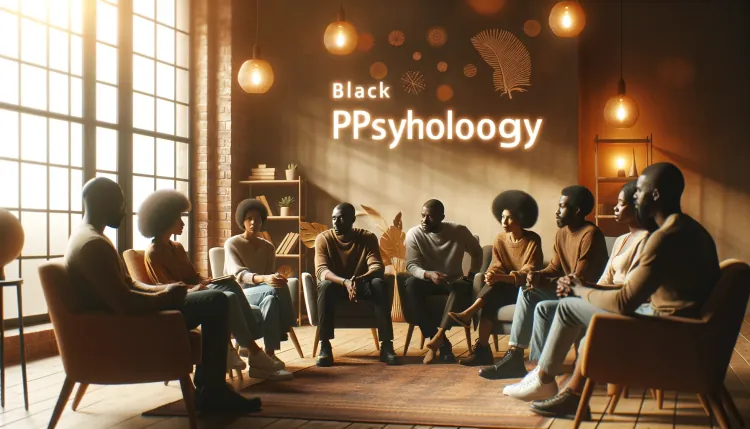Black Psychology: Insights into Mental Health in African American Communities
The field of Black psychology and its impact on mental health in African American communities. Understand key concepts like racial identity development, cultural mistrust, and resilience

Black psychology is a vital field that focuses on understanding the mental health experiences of African Americans through a culturally relevant lens. This discipline considers the unique socio-cultural, historical, and economic factors that impact the psychological well-being of Black individuals and communities in the United States and beyond.
Historical Context The roots of Black psychology can be traced back to the Civil Rights Movement in the 1960s when African American psychologists began to challenge the Eurocentric perspectives predominant in the study of psychology. Pioneers like Dr. Joseph White, known as the "father of Black psychology," advocated for a psychological framework that acknowledged the distinct cultural experiences of Black people. This led to the establishment of the Association of Black Psychologists in 1968, which aimed to address the overlooked psychological needs of African Americans.
Key Concepts in Black Psychology
- Cultural Mistrust: Historically rooted distrust towards institutions, often due to experiences of racism and discrimination. This mistrust can influence how African Americans perceive and interact with mental health services.
- Racial Identity Development: The process through which Black individuals come to understand and place value on their racial identity. This development is crucial for psychological well-being and can be influenced by factors like community, family, and societal attitudes.
- Resilience and Coping Mechanisms: The strength and adaptive strategies developed by African Americans to cope with socio-economic adversities and racial stress. These include reliance on community, spirituality, and collective action.
Challenges in Mental Health African Americans often face significant barriers to accessing mental health services, including:
- Stigma: Mental health stigma is particularly strong in many Black communities, where psychological issues might be seen as personal failings rather than treatable conditions.
- Underrepresentation: There is a lack of African American professionals in the mental health field, which can affect the cultural sensitivity and effectiveness of treatment.
- Economic Barriers: Economic disparities can prevent access to mental health resources, compounding the stress and challenges faced by many African Americans.
Cultural Competence in Therapy For therapy to be effective for African American clients, it must be culturally competent. This involves:
- Understanding Cultural Specificity: Therapists must be aware of the cultural, historical, and social contexts that influence the mental health of their Black clients.
- Building Trust: Developing trust through empathy, respect, and understanding is crucial in overcoming cultural mistrust.
- Incorporating Cultural Strengths: Effective therapy should recognize and utilize the cultural strengths and coping strategies inherent in the Black community.
The Future of Black Psychology As awareness of mental health grows within African American communities, the demand for culturally competent mental health services is increasing. The field of Black psychology continues to evolve, emphasizing the need for research, education, and policy changes that address the unique challenges faced by Black individuals. This evolution is critical for promoting mental health equity and understanding the diverse experiences within the Black community.
Conclusion Black psychology not only enriches our understanding of the unique psychological experiences of African Americans but also challenges and expands the broader field of psychology. By embracing cultural perspectives and addressing systemic barriers, the discipline aims to enhance mental health outcomes for Black communities across the globe.
What's Your Reaction?






















